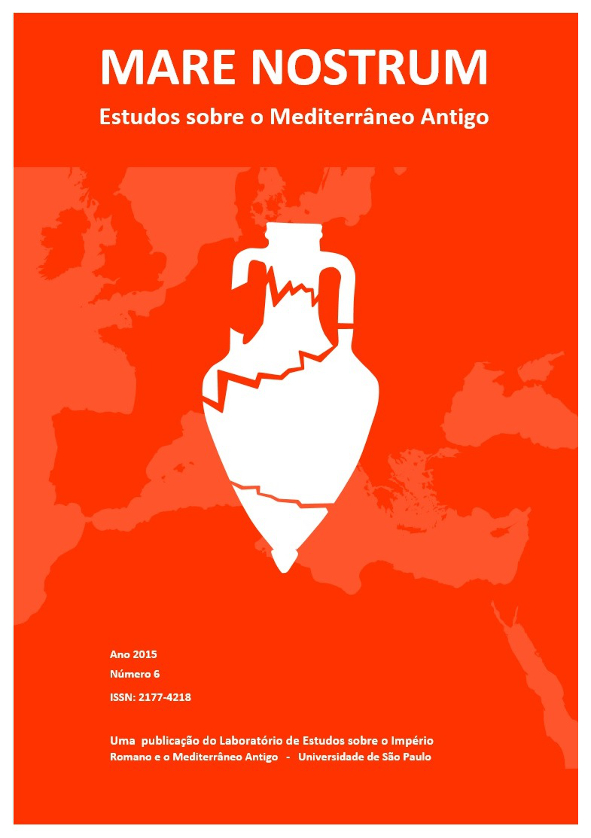Caesar ’s Gauls: ethnography and virtus in Bello Gallico
DOI:
https://doi.org/10.11606/issn.2177-4218.v6i6p21-35Keywords:
Julius Caesar, Ancient Ethnography, GaulAbstract
The work usually entitled Commentarii de Bello Gallico was written by Gaius Julius Caesar while he was proconsul at the provinces of Illyricum and Cisalpine Gaul (59-50 b.C.E.) and narrates his campaigns in Gaul, with its conquest and subjection as his major aims. The present article intends to analyze how Caesar presents his ethnography of Gaul in the Bello Gallico as a metonymy of the region by the inhabitants, thus excluding the ethnographies of Germania and Britannia. Furthermore, we will explore how the author constructs the image of an ideal enemy through the articulation of that ethnography with the concept of virtus, creating an opponent so valorous that he could even sometimes be compared with the Romans, but who, nevertheless, was subdued and conquered by him, Caesar.Downloads
Download data is not yet available.
Downloads
Published
2015-12-14
Issue
Section
Articles
License
Responsibility for the content published by Mare Nostrum rests exclusively with the author(s) of such content.
The reproduction of the texts published by Mare Nostrum is licensed according to Creative Commons license Attribution-NonCommercial 4.0 International (CC BY-NC).
Authors who publish with this journal agree to the following terms:
- Authors retain copyright and grant the journal right of first publication with the work simultaneously licensed under a Creative Commons Attribution License that allows others to share the work with an acknowledgement of the work's authorship and initial publication in this journal.
- Authors are able to enter into separate, additional contractual arrangements for the non-exclusive distribution of the journal's published version of the work (e.g., post it to an institutional repository or publish it in a book), with an acknowledgement of its initial publication in this journal.
- Authors are permitted and encouraged to post their work online (e.g., in institutional repositories or on their website) prior to and during the submission process, as it can lead to productive exchanges, as well as earlier and greater citation of published work (See The Effect of Open Access).
How to Cite
Caesar ’s Gauls: ethnography and virtus in Bello Gallico. (2015). Mare Nostrum, 6(6), 21-35. https://doi.org/10.11606/issn.2177-4218.v6i6p21-35









